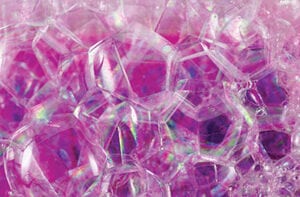Effective Use of Defoamers in the Pharmaceutical Manufacturing Process
Effective Use of Defoamers in the Pharmaceutical Manufacturing Process
Blog Article
The Function of Defoamers in Enhancing Item Quality and Efficiency
Defoamers serve as essential ingredients that reduce this problem, guaranteeing smoother production workflows while improving the practical and aesthetic qualities of the final items. The choice of the proper defoamer can be crucial to attaining ideal results, increasing important inquiries regarding formula compatibility and efficiency metrics that warrant more exploration.
Comprehending Defoamers
Comprehending the function of defoamers is important for keeping product quality across various markets. Defoamers are chemical additives made to decrease and stop the development of foam in fluid systems, which can detrimentally influence procedures such as mixing, filling up, and surface stress. Lathering can lead to inefficiencies, product flaws, and jeopardized visual appeal, making defoamers an important part in producing operations.
In commercial applications, defoamers aid to boost item consistency and stability. As an example, in the paint and finishings industry, foam can conflict with the application procedure and the last finish. In food and drink manufacturing, excessive foam can hinder bottling and product packaging efficiency. The efficient use defoamers not only guarantees smoother production processes but also adds to superior product efficiency.
In addition, the option and formula of a defoamer need to line up with details application demands, such as compatibility with various other components, efficiency under varying temperature and pH conditions, and possible governing restrictions. Ultimately, understanding defoamers' functions and their value in various solutions is important for enhancing production and making certain the finest final product.
Kinds Of Defoamers
Defoamers can be categorized into several kinds based on their make-up and mechanism of activity. The main types include silicone-based, non-silicone natural, and inorganic defoamers.
Silicone-based defoamers are amongst the most efficient, primarily due to their capacity to spread rapidly on the fluid surface area and interrupt foam formation. Their special chemical structure permits exceptional security, making them suitable for high-temperature applications and atmospheres with differing pH degrees.
Non-silicone natural defoamers, typically made up of fatty acids or all-natural oils, are valued for their biodegradability and reduced toxicity. These are typically utilized in food and drink applications where safety and environmental impact are extremely important.
Inorganic defoamers, that include substances like talc or calcium carbonate, act by raising the density of the fluid, thereby minimizing foam stability. They are usually made use of in industrial procedures where compatibility with other materials is not an issue.
Each sort of defoamer has distinct advantages and restrictions, permitting tailored options depending upon the particular foaming issues encountered in different applications. Recognizing these distinctions is important for enhancing efficiency and attaining wanted item high quality.
Applications Across Industries
Numerous industries leverage defoamers to boost item high quality and operational performance. In the food and drink industry, defoamers are essential in processes such as developing and dairy products production to stop foam development, which can result in inefficiencies and product incongruity. By managing foam, producers can make certain far better return and a much more uniform item.
In the pharmaceutical market, defoamers play a crucial role in the formulation of liquid medications, where excessive foam can hinder mixing and exact application. Their use assists preserve the stability of the formulas and facilitates smoother manufacturing procedures.
The paint and finishings industry additionally relies upon defoamers to boost the performance of items during application. By minimizing foam, these ingredients make sure a smoother finish and boost the visual qualities of the end product.

Advantages of Utilizing Defoamers
While the application of defoamers varies throughout industries, their advantages constantly enhance product quality and procedure efficiency. One substantial advantage is the decrease of foam formation throughout producing processes, which can otherwise lead to manufacturing delays and inconsistencies in item high quality. By reducing foam, defoamers enable a smoother circulation of materials, promoting a lot more efficient more helpful hints procedures and minimizing the possibility of tools malfunctions.
In addition, making use of defoamers can improve the appearance and appearance of end products. In fields such as finishes, paints, and food handling, excessive foam can compromise the visual looks and general quality, while the ideal defoamer application makes sure a consistent surface and preferable attributes. Defoamers can add to cost financial savings by reducing waste during production and maximizing the usage of raw products.

Picking the Right Defoamer
Selecting the best defoamer is critical for enhancing manufacturing processes and making sure item quality. The option of defoamer affects not just the performance of foam control but also the general efficiency features of the end product. Elements to think about consist of the kind of application, the chemistry of the solution, and the ecological problems under which the item will be used.
Different industries may require certain defoamer kinds, such as silicone-based, organic, or polymeric defoamers. Comprehending the compatibility of the defoamer with the main components is necessary to avoid adverse reactions that can endanger item stability. Additionally, the defoamer's effectiveness in numerous temperature levels and pH degrees should be evaluated to ensure consistent efficiency.
Evaluating the defoamer in small applications can offer beneficial insights into its efficiency and suitability. Factor to consider of regulatory conformity, especially in food, drugs, and cosmetics, is vital in selecting a defoamer. Eventually, a comprehensive analysis of these elements will certainly bring about the option of a defoamer that not only controls foam properly however likewise improves the quality and performance of the end product.
Verdict

To conclude, defoamers are crucial additives that considerably boost product top quality and performance throughout various industries. By successfully lowering foam formation, these agents not just improve functional efficiency however likewise add to the useful and aesthetic integrity of items. The tactical selection and application of defoamers bring about cost savings, optimized source use, and increased consumer complete satisfaction. In general, the value of defoamers in commercial processes can not be overstated, as they play an essential duty in accomplishing constant and top notch results.
Lathering can lead to ineffectiveness, item flaws, and compromised visual allure, making defoamers an important element in making procedures.

Report this page